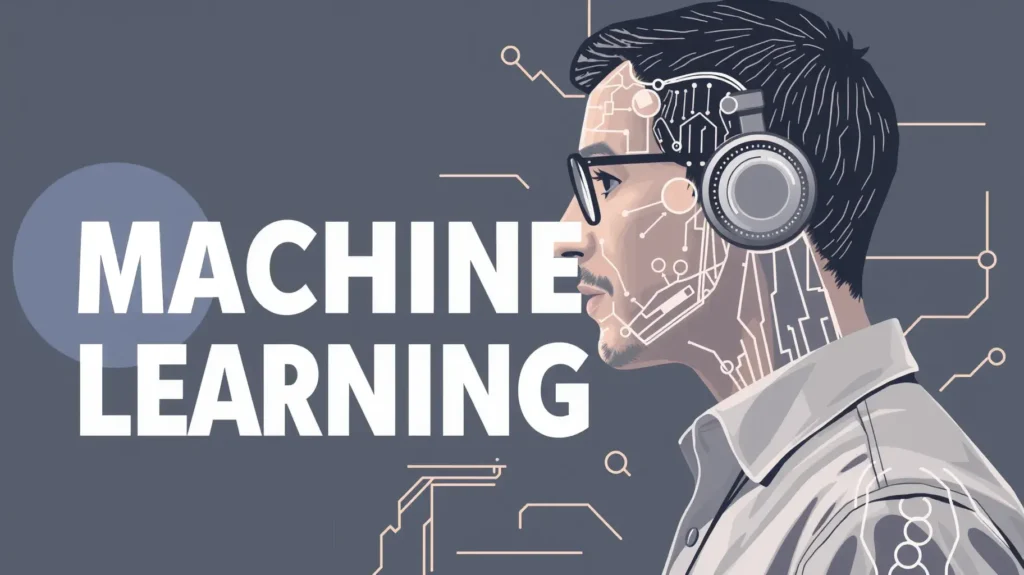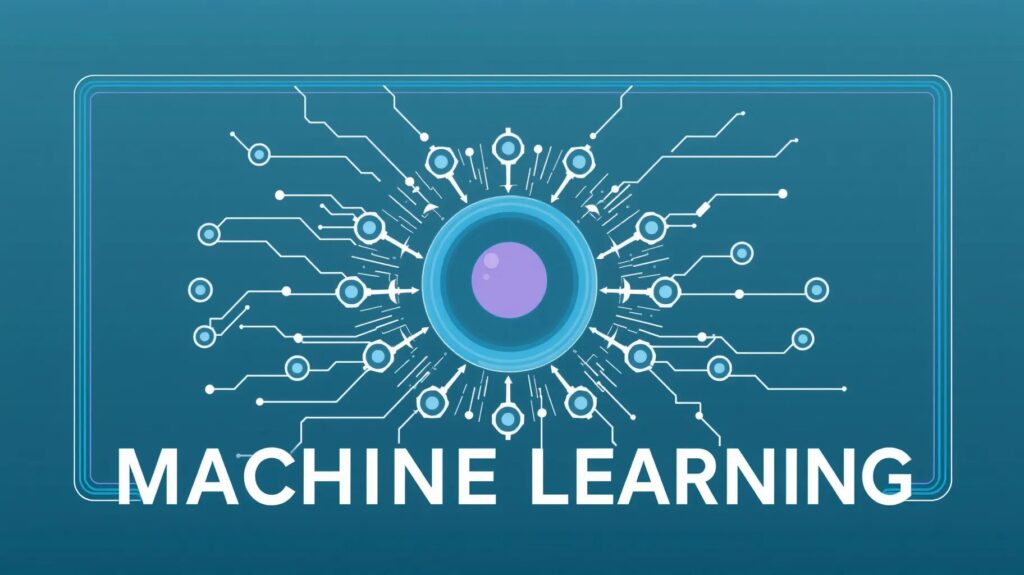
What Machine Learning Really Is
Let’s set the record straight before diving into the misconceptions. Machine Learning (ML) refers to a branch of artificial intelligence where systems are trained to recognize patterns, make predictions, and improve over time without explicit instructions. If you’ve been scrolling through Reddit lately, you’ve probably noticed a rise in discussions calling out the hype around ML. People are talking about what ML can do, but even more about what it can’t.
Reddit communities love nothing more than debunking myths—especially when it comes to misunderstood technologies like ML. So, let’s unpack these misconceptions and shed light on what the real ML journey looks like.
Misconception #1: ML Can Solve Every Problem
This is probably the biggest misconception floating around the tech circles. Many believe that with enough data, machine learning can solve just about any problem. Redditors, however, are quick to point out that ML isn’t a magic bullet. For example, while ML can help predict customer behavior, it’s not going to suddenly cure cancer overnight. The nature of the problem, quality of the data, and human involvement are all critical factors that determine how successful ML will be. ML isn’t some universal solver—and those on Reddit will tell you that loud and clear.
Misconception #2: More Data Always Means Better Models
“Just throw more data at it”—you’ve heard this before, right? But according to many tech-savvy Redditors, this is far from true. While having lots of data is important, the quality of that data matters even more. Feeding a machine learning model garbage data, no matter how much of it you have, will just produce poor results. This leads to the well-known phrase in tech circles, “garbage in, garbage out.” Quality data, rather than quantity, is key to creating accurate models, and Reddit’s tech community never lets this slide under the radar.
Misconception #3: AI and ML Are the Same Thing

One of the most common confusions—AI and ML being used interchangeably. Let’s break it down: AI (Artificial Intelligence) is the overarching concept of machines mimicking human behavior, while ML (Machine Learning) is a subset of AI. Think of AI as the parent, with ML being just one of its many children. Redditors are particularly vocal about this misconception because people often attribute too much intelligence to ML when, in reality, it’s just a tool within a broader AI toolkit.
Misconception #4: Machine Learning Is Fully Autonomous
There’s this vision that machine learning systems are like some futuristic tech—working without any human intervention. But let’s be clear: ML systems require constant human oversight. From training models to fine-tuning algorithms, humans are involved in every step. Reddit threads often emphasize the role of data scientists and engineers in managing and maintaining these systems. It’s more of a collaboration between human intuition and machine processing than an independent AI working away on its own.
Misconception #5: ML Is All About Complex Algorithms
Here’s where Redditors love getting into the weeds. Many assume ML is all about coding super complicated algorithms. But in reality, a huge chunk of the work is about understanding the data, not the algorithm. Sure, algorithms are important, but they’re just a piece of the puzzle. Most of the time, data preprocessing and feature engineering—deciding what to include in your model—matter way more than throwing an advanced algorithm at the problem.
The Role of Human Intuition in Machine Learning
This one often flies under the radar, but anyone who’s spent time reading Reddit’s ML forums will tell you how crucial human intuition is in the machine learning process. It’s easy to believe that once an algorithm is in place, the system will run itself. But in truth, data scientists make judgment calls every step of the way, whether in cleaning data, selecting features, or even in deciding what kind of problem they’re trying to solve in the first place.
It’s like cooking—no matter how good your oven is, if you don’t choose the right ingredients or recipe, the end result won’t be great. Humans still play a massive role in guiding and fine-tuning ML systems. If you’re looking for an easy “set-it-and-forget-it” solution, ML isn’t it. Reddit’s knowledgeable crowd loves pointing this out in discussions, often with real-life examples to back it up.
Misconception #6: ML Always Needs Big Data
In today’s data-driven world, you’ll often hear that big data is necessary for any machine learning project. But many Redditors disagree, pointing out that not every problem needs mountains of data. In fact, some tasks can be efficiently handled with small datasets, provided that the data is clean and relevant.
There are techniques like transfer learning, where a model trained on a large dataset can be adapted to smaller datasets. Think about it—bigger isn’t always better. This distinction is crucial in debunking the myth that ML only works with huge corporations with access to massive data warehouses. Even small companies, startups, or individuals can work with ML using more modest datasets. The key here is using the right methods for the right problems.
Redditors Explain: Machine Learning Isn’t Magic

One of the most refreshing things about reading Reddit threads on machine learning is the no-nonsense approach many users take to the topic. In contrast to the high hopes and sometimes overhyped promises seen in tech media, Redditors emphasize that ML is just a tool. It’s not magic, and it’s not going to solve all of the world’s problems on its own. This perspective is invaluable for grounding expectations. The truth is that ML can be incredibly powerful—but like any tool, its effectiveness depends on how, where, and why it’s applied.
One Redditor even humorously compared ML to “advanced statistics with fancy clothes on.” That’s the level of grounded realism you often find in these forums—cutting through the hype and distilling the truth about how things really work.
Why ML Isn’t a “One-Size-Fits-All” Solution
Imagine trying to use a Swiss Army knife for every task. Sure, it’s a versatile tool, but it’s not always the best choice for every job. Redditors are quick to point out that machine learning isn’t a universal solution. Every problem requires its own specific approach, and sometimes, ML isn’t even the best option. For example, simple statistical methods or rule-based systems can sometimes outperform machine learning models for straightforward problems.
One key point that pops up repeatedly in discussions is that the cost and complexity of building, training, and deploying ML models can outweigh the benefits if not applied to the right type of task. It’s not a one-size-fits-all solution, and expecting it to be can lead to disappointment.
The Cost and Effort of Implementing ML Projects
Another misunderstood area of ML that Reddit loves to tear into is the real cost and effort involved in getting a project off the ground. You might think it’s as simple as running an algorithm, but in reality, data collection, cleaning, model selection, training, and deployment are all resource-intensive processes. Redditors frequently talk about how teams often underestimate these steps, leading to over-promised and under-delivered projects.
Moreover, maintaining a machine learning system is an ongoing task. Models can degrade over time due to changes in data distribution (a phenomenon called model drift), which means companies need to continually invest in retraining and updating their systems. Machine learning projects can be long-haul endeavors, and this is something that enthusiasts and professionals on Reddit often remind newcomers.
Misconception #7: ML Can Instantly Replace Human Jobs
There’s no shortage of headlines declaring that machine learning will soon replace massive swaths of the human workforce. But hop over to a Reddit thread on this topic, and you’ll find some strong pushback on that narrative. Machine learning may automate certain tasks, but it’s a long way from replacing complex human jobs.
Redditors often point out that while ML can take over repetitive, data-driven tasks, it struggles with anything requiring creativity, critical thinking, or human interaction. For example, customer service chatbots may help streamline processes, but they still fall far short of replacing real human conversation. Similarly, ML can assist in making decisions, but in areas like medicine, law, or art, human expertise remains irreplaceable.
The Importance of Domain Expertise in ML Models
A major point that comes up in Reddit discussions is the role of domain knowledge. While machine learning models are incredibly powerful at recognizing patterns, they still rely heavily on the knowledge and experience of domain experts. For example, in fields like finance, healthcare, or law, knowing the context of the data is just as important as having the data itself.
This is why Redditors often caution against blindly applying generic models to specialized fields. Without proper domain expertise, even the most advanced algorithms can lead to misinterpretations or wrong conclusions. Think of it this way: ML might be a great tool, but it still needs to be wielded by someone who knows the ins and outs of the problem being solved.
Misconception #8: ML Is Just for Tech Giants
Many people assume that machine learning is only accessible to tech giants like Google, Amazon, and Facebook, but Redditors are quick to debunk this idea. Sure, these companies have the resources to build large-scale, cutting-edge ML systems, but that doesn’t mean smaller businesses or individuals can’t get involved. In fact, tools like TensorFlow, Scikit-learn, and AutoML have made it easier than ever for developers to build ML models without needing a massive infrastructure.
One thread on Reddit explained how even small startups have successfully implemented ML to gain a competitive edge. From improving customer support to optimizing marketing campaigns, small businesses are finding ways to leverage machine learning. The key is knowing what tools and platforms are available—and how to use them creatively to solve real-world problems without a Google-sized budget.
Realistic Expectations for the Future of Machine Learning
Whenever a new technology explodes in popularity, it’s easy for people to get swept up in grand visions of what it can achieve. But the ML enthusiasts on Reddit have a more measured view of where the field is headed. While ML will undoubtedly continue to evolve and become more sophisticated, it won’t revolutionize every industry overnight.
One of the most discussed points in Reddit’s tech community is that incremental improvements will be more common than breakthrough innovations. Expect to see ML enhance processes and improve efficiencies, but don’t expect it to completely reshape industries overnight. Think of it more like evolution than revolution—a slow but steady improvement of technologies we already use.
Redditors caution against unrealistic expectations, especially in fields like healthcare or autonomous driving, where the consequences of failure can be massive. ML will continue to improve, but those improvements will likely come in waves, with plenty of trial and error along the way.
Where the True Power of ML Lies
So, with all the myths busted and the hype put in perspective, where does the true power of machine learning lie? Redditors agree that it’s in pattern recognition and prediction. ML excels at tasks that involve making sense of large amounts of data, detecting subtle trends, and predicting future outcomes. This is why you see ML being used in financial forecasting, medical diagnostics, and personalized recommendations on streaming platforms.
It’s not that machine learning is some futuristic, omnipotent force—it’s that it can process vast amounts of data more efficiently than humans can. By recognizing patterns we might miss, ML helps improve decisions in areas like fraud detection, supply chain management, and customer personalization. But its power lies in collaboration, not replacement. The most effective ML systems work hand-in-hand with human experts.
How To Spot ML Hype in Tech Discussions
If there’s one thing Redditors are fantastic at, it’s spotting hype. You’ll often find discussions on how to separate fact from fiction when it comes to ML. It’s not uncommon for companies, especially startups, to overstate what their machine learning technology can do. So how do you cut through the noise?
Reddit users recommend looking for certain red flags in tech discussions. Vague promises like “revolutionizing the industry” or claims that “AI will replace all jobs” are often exaggerations. Instead, look for tangible outcomes—what problems are being solved, what data is being used, and what are the real limitations? Another key point Redditors make is to question whether a company is actually using ML, or if they’re just jumping on the AI buzzword bandwagon.
At the end of the day, understanding ML means keeping your expectations grounded. It’s a tool—an amazing one, yes—but it’s not magic. Knowing its strengths and weaknesses will help you navigate the hype and make informed decisions about where and when to apply it.
References and Resources
For those wanting to dive deeper into machine learning, here are some key references and resources that Redditors frequently recommend for gaining a better understanding of ML, its limitations, and its real-world applications:
- “Hands-On Machine Learning with Scikit-Learn, Keras, and TensorFlow” by Aurélien Géron
A favorite among Redditors, this book offers practical examples and walks through building machine learning models step by step. It’s great for those who want hands-on experience. - Google’s Machine Learning Crash Course
Google offers a free course covering ML fundamentals. It’s an excellent introduction for beginners and is often shared in Reddit’s tech forums: Google ML Crash Course. - Kaggle
A community hub for data scientists and machine learning enthusiasts. Kaggle offers datasets, competitions, and tutorials—and it’s highly recommended by Redditors for those looking to practice real-world ML skills: Kaggle. - “The Mythos of Model Interpretability” by Zachary C. Lipton
This paper frequently pops up in Reddit discussions about the real-world limitations of ML. It addresses the challenges of interpreting machine learning models and the trade-offs involved. You can find it on arXiv: The Mythos of Model Interpretability. - OpenAI Blog
OpenAI’s blog is a go-to resource for staying up to date on AI advancements, ethical discussions, and real-world applications. Reddit users often link to their thought-provoking posts: OpenAI Blog. - “Deep Learning” by Ian Goodfellow, Yoshua Bengio, and Aaron Courville
Considered the bible of machine learning and deep learning concepts, this book is a bit more technical but is frequently referenced by Redditors diving into more advanced topics. - Coursera: Machine Learning by Andrew Ng
One of the most highly recommended free courses on Reddit. Taught by Stanford professor Andrew Ng, this course covers the basics and gives you a solid foundation: Coursera Machine Learning. - The Reddit Machine Learning Community (r/MachineLearning)
This is a highly active community where professionals and enthusiasts alike share insights, ask questions, and discuss the latest developments in ML: r/MachineLearning. - Fast.ai
Fast.ai offers an easy-to-understand approach to deep learning with a strong focus on practical applications. Their courses are well-loved by Redditors for being beginner-friendly yet deep enough for experts: Fast.ai. - ArXiv: Machine Learning
A repository of research papers on cutting-edge ML techniques. Reddit users often share papers from ArXiv for those interested in the latest academic developments: ArXiv ML Section.